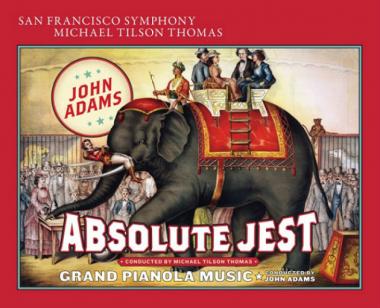Prize-Winning Tenor Honors His Teacher
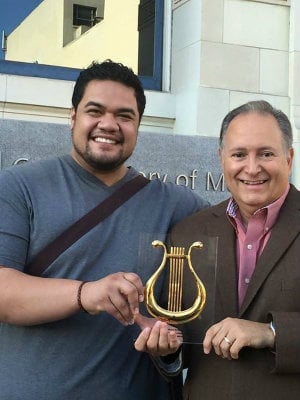
Long before César Ulloa became head of the San Francisco Conservatory of Music’s Voice Department this summer, he spent decades on three continents coaching young singers to careers in major operas houses.
Still, what happened last week prompted Ulloa to tell me: "In all my years of teaching, I've never been so deeply moved by a student's humbleness and kind generosity."
The occasion: a former Merola Program participant, New Zealander Darren Pene Pati, returning from the London Operalia — where he won several awards, including a $20,000 second prize, and the ROLEX Audience Prize — presented one of the trophies to Ulloa as a gift of gratitude. Pati posted on Facebook:
After arriving back in San Francisco, I went to see my teacher César Ulloa, and I gave him my Operalia trophy as a gift. César trained the voice back into fit shape for this competition. He deserved the accolade more than I did. Please have this as my appreciation for your hard work. Thank you so much, César!
The Operalia finals, including Pati's performances, remain available for free viewing on Medici.tv. Ulloa has teaching affiliations with the San Francisco Opera Center's Adler and Merola Programs; the S.I.V.A.M. Young Artist Program of Mexico City; Domingo-Thornton Young Artist Program; International Vocal Arts Institute in Israel, Montreal, Puerto Rico, China, and Italy; Dolora Zajick Institute for Dramatic Voices; L'Atelier Lyrique de L'Opera de Montreal; and Palm Beach Opera Young Artist Program.
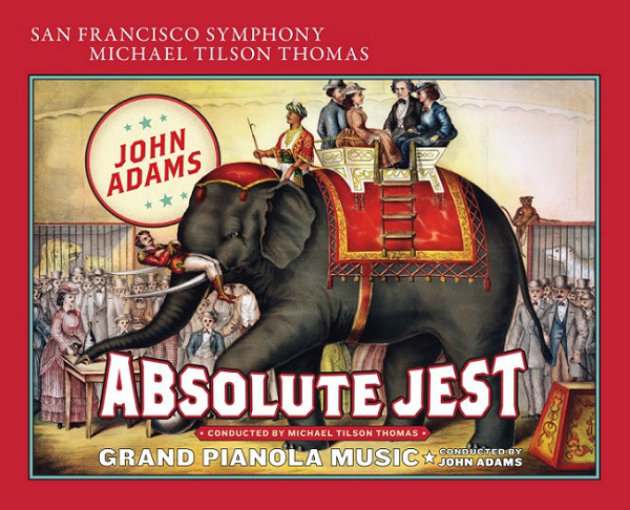
CD Reviews Celebrate MTT-S.F. Symphony Partnership
The Independent is unstinting in its praise:
John Adams’ ongoing relationship with the San Francisco Symphony is celebrated in this pairing of Grand Pianola Music with the more recent Absolute Jest, for orchestra and string quartet.
The blend of Reichian pianos and vocal susurrus with assertive brass lends the earlier piece a brashly American character. Absolute Jest, by contrast, reflects more European influences: Adams adapts fragments of Beethoven, creating effectively an extended scherzo which furnishes the musical jest of the title.
The orchestra’s ostinatos initially seem to hinder the string quartet’s nimble interplay, but by the end of the opening section, the quartet seems suddenly freed, dancing gaily into the subsequent Presto. It’s this lightness of spirit with which Adams evokes the scherzo, establishing an ebullient charm which continues through to the concluding prestissimo.
Absolute Jest will be performed during the orchestra's upcoming tour of Europe, in Edinburgh (Aug. 27), Berlin (Sept. 4), Bucharest (Sept. 7), and Lucerne (Sept. 9).
S.F. Opera House Seats: Oh, What a Relief It Is
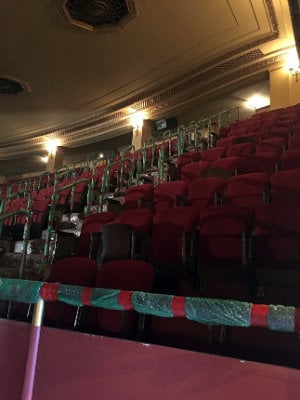
The news from the War Memorial Opera House — closed during the end of S.F. Opera's summer season and the beginning of the fall season in September — is that installation is being completed for new, fancy, and comfy seats in the balcony. Orchestra seats will be replaced later.
For thousands of audience members over many years, the ancient, forward-slanting seats, especially in the balcony, presented a real challenge, especially through five hours of Les Troyens last month, and the combined 16 hours of the Ring over four days within a week.
All 888 seats in the balcony are being replaced by ergonomic models, which are quite expensive, but very much worth it — especially as you, the audience, are paying for the project through the $1 and $2 facility fee per ticket that has been in effect since last year. All the house's 3,146 seats will be replaced during the next couple of years.
Improvements include that the armrest on the standard at the end of each aisle has an aisle LED light built into it (meeting the code finally), and the seats flip up automatically when no one is sitting in them, allowing easier access to seats inside rows.
Currently, according to Jennifer Norris of the War Memorial Performing Arts Center, "Installation is in progress, seat backs are in place, seat bottoms yet to come. There is plastic on the carpet to protect it during the process." Project collaborators for the landlord Performing Arts Center are the S.F. Ballet and S.F. Opera, the two main renters of the War Memorial.
The manufacturer is the Irwin Seating Company. Norris added, "we are using the Shalleck Collaborative (also responsible for the new Strand Theater for ACT) as our theatrical consultant."
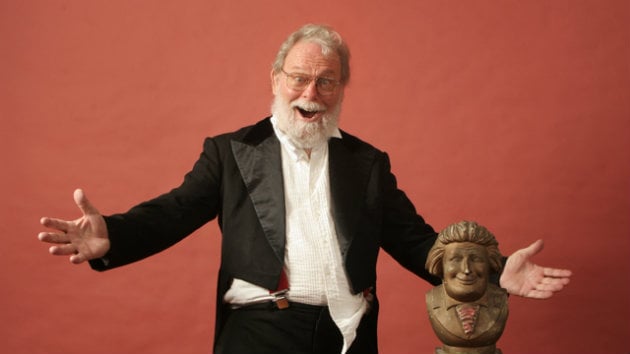
Quodlibet: an Amazing New Musical Archive
Patrick Castillo sounded apologetic introducing his new website for Music@Menlo at Sunday's Prelude Concert: "We couldn't find anything harder to pronounce and understand..." Subtext to the joke was justified pride in something novel and terrific.
Quodlibet, said Castillo, the festival's busy artistic administrator, is an online archive for Music@Menlo, "a place to watch and listen, read and learn." It is a dizzying compendium of material, with links between subjects, categories, and a single hop away from information about the festival now in progress. It is possible to listen to archived performances, link to historical background, and then — using an ever-present link in upper right of the screen — go to the relevant work or composer now on the festival program. It's easier, and better, to try out the site than to explain how it works.
As the introduction to the site states, it is "an online resource that integrates the rich trove of written, audio, and video content from Music@Menlo's founding in 2003 to the current festival season, offering a unique exploratory experience."
As to the name, the Latin source is "what" (quod) and "tasty or pleasing" (libo), "that which pleases." In music, it's combining different melodies in counterpoint and often a light-hearted, humorous manner; although it also appears in great classical works, such as the concluding part of Bach's Goldberg Variations. On the other hand, Peter Schickele's Quodlibet for Small Orchestra is in the class with his Unbegun Symphony. It combines Beethoven, Brahms, "Tea for Two," and a musical kitchen sink.

